Mr Holmes press conference with Sir Ian McKellan and Laura Linney
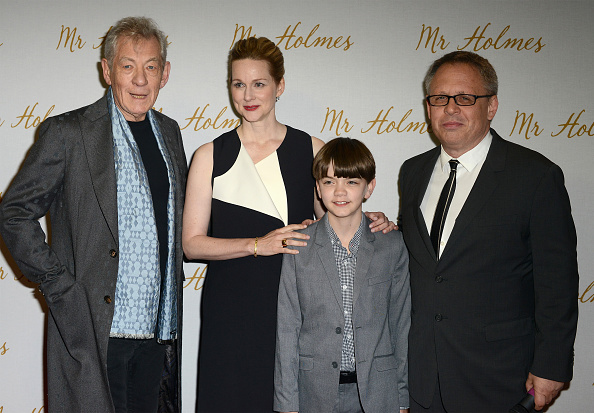
Ahead of the Mr Holmes premiere, The Upcoming caught up with actors Sir Ian McKellan and Laura Linney to talk about the world of Sherlock Holmes and the man behind the myth.
What was it about the themes in this film that struck a chord with you?
Laura Linney: Well, what I personally love about the movie is that there are a lot of unexpected things sort of braided together, so you can talk about a lot of different themes or dynamics of character and story and context. Not to mention just Sherlock Holmes himself, the icon of that character and how this movie deals with him in a very different way than he has been dealt with before. For me a tiny thread was what you think someone is and what they actually are. I find that an age-old interesting dynamic, whether you’re dealing with fame or whether you’re just dealing with a parent or a child or how perception is not always exact.
Ian McKellan: Well one of the themes is very touching really, that someone we think we know well, Sherlock Holmes – someone we probably wouldn’t want to spend a lot of time with, I mean he’s not a very sociable person – turns out to have a beating heart that he’s trying to catch up with, and has spent thirty years running away from. I found it very touching that, at the end of his life, he wanted to complete the emotional side that had been neglected. He’s a much nicer person then he was at the beginning and so there’s hope for us all, I suppose.
LL: There’s also the point about feeling haunted, you know, being haunted by something that feels incomplete or unrecognised or unfulfilled or dissociated.
The writer of the book that this film is based on took some criticism from Sherlock Holmes fans for writing him as frail and less than perfect. Are you concerned you might get the same criticism?
IM: No, because this is a different aspect of him. As I said, he is revealed to be a rather more pleasant person then he is at the start of the story or has been for the rest of his life, so I think Holmes comes out of this story rather well. It is another play on the familiar character, and I like the way that it would be possible to sit through the film and believe that Conan Doyle had written it. I’ve not had any complaints about trampling over Sherlock Holmes. I mean, so many actors have, hundreds. Hundreds.
One of the themes the film touches on is loneliness. Do either of you suffer from loneliness?
IM: Well, I live alone, but Laura doesn’t.
LL: I think there’s a big difference between loneliness and alone. I love alone. I need some alone time, I like to ponder and think and have my mind float around. Loneliness can be very, very hard, it can drive people crazy and I think Mrs Munroe has been very lonely, and Sherlock has been lonely by choice. So there’s also the difference between the two of them as someone who has exiled themselves and someone who has been robbed of partnership.
Do you two treasure alone time because you’re both such public figures?
LL: I like people, I like meeting people and I like being around people. But then, like anything else, there’s only so much you can take in. There’s only so much you can absorb and I find I get to a point where I need to just go.
IM: I’m alone but I’m not lonely, I think that’s a very good distinction. If I am at home half of me is dying to get out and when I’m out most of me is dying to get back home. But working and forced sociability is something I do enjoy. We had lunch together every single day on the set, we’re not the sort of people who separate the minute the works stopped.
Sir Ian, did you get any inspiration from the older Holmes stories for your part?
IM: No. I’ve learned that if someone’s taken the trouble to write a script, any suggestions I have about omissions from the source material, whatever it might be, it’s too late. They’ve already thought about that. My ideas are likely to be irrelevant, boring, unnecessary, which does relieve you of having to read enormous biographies of the man. Of course, you do want the script to be good and this one was. I have to say this was a peach of a part for any actor, and I’m very, very lucky that I knew Bill of old so he thought of me before any of the other actors who are tearing what’s left of their hair out.
Laura, you were very interested in the Sherlock Holmes stories when you were young, what drew you to them?
LL: I was. I was a little obsessed with him from I guess, the age of nine on. It was something I shared with my father, he bought me the books. I loved the movies, I loved Nigel Bruce, I loved Basil Rathbone. When I applied to Julliard they ask you who your favourite actor is, and I put Basil Rathbone. I love the world, I love that Sherlock Holmes is more brilliant than anyone in the room. There’s something sexy about the fact that he’s a loner, he was a drug addict, a musician. What challenges him, what makes him connect? And I loved that it was set in London; I sort of fell for it hook, line and sinker.
Sir Ian, a few years ago you were talking about unfulfilled ambitions, was Sherlock part of that?
IM: No, I never had an ambition to play Sherlock Holmes and if I ever thought about it. I thought well, I’m too old now, but then this part of a ninety-three year old Sherlock comes along. I mean, like everybody else I do think he was a real person. I’ve been around Baker Street and I’ve seen the statue. It is extraordinary.
LL: It’s amazing that one character, through decades, can be picked up and put in so many different contexts, and for each cycle to have a different view psychologically. There are not many characters who have had such a work-out and people are still interested.
As performers, how important do you think it is that characters like Sherlock Holmes remain in the public domain?
IM: Well, I can’t comment on the legal situation, although I note there was no complaint about the novel. It’s not as difficult or remarkable or puzzling to play a character that so many other people have played. When I played Hamlet, if you started thinking about all the people who had played Hamlet you’d never step onto the stage, but you do because you know that so many people who have played Hamlet have had success. It’s a wonderful part. The difference with this is that my Holmes is a script nobody else has done.
LL: I think the difference with Sherlock Holmes is that he wasn’t written to be embodied, as opposed to the stock characters in the theatre. But they’re meant to be inhabited, or else they die. I’m a big proponent of keeping the exploration going. As far as the copyright stuff, I’m not educated enough to comment but I think it’s an interesting topic of debate.
Laura, how long did it take you to prepare your accent and Sir Ian, did you take any mementos from this film?
LL: Oh! Thank you for saying that I could kiss you!
IM: I’ve got his hat, his trilby.
LL: It took them a while to decide which accent they wanted, so I sort of did a pooh-pooh platter of different accents, Then we landed upon Sussex and Helen Ashton was a fantastic coach. You know, you just work really hard and pray that you’re not gonna disrupt the balance.
IM: I never knew where Mrs Munroe came from, all I knew is that she came from somewhere absolutely real and believable. And it says a lot a lot about accents you know: everybody from Liverpool does not speak with a Liverpool accent, it’s a variation, it’s personal. That’s the most difficult thing about doing a foreign accent, it’s not copying someone else. Your voice came from right inside yourself.
LL: And also it was a time when people migrated a lot. As a war widow, she probably moved around a lot like myself: I grew up in Manhattan, but I have a slight Southern accent.
Sir Ian, what does Sherlock Holmes mean to you as a character?
IM: Well, I’ve just turned seventy-six and he’s ninety-three so I think oh, I’ve got a bit more time left ahead of me. I think don’t give up, really, even right to the end there’s more you can discover about yourself and the world. That would be a good motto for an old person to have, and the old people I know who are really going at it are enjoying their lives, even with all the aches and pains.
Sir Ian, how much research did you do on the dementia side of the character?
IM: I just went inside myself and there’s enough creeping dementia to imagine and exaggerate, I think. Actually, what I did was that I went for the decrepitude of the body and the mind, and put all my efforts into trying not to have either. You can read all these books and you can try to tell people what’s the matter with them, you know, it doesn’t help you to know. Might help for the shrink to know that, might help with the medication, but actually embodying someone whose mind and body are beginning to fail… We have intimations of mortality from very early on, and possibly an actor can be more aware than other people, you feed off that experience I think.
Mr Holmes was released nationwide on 19th June 2015, read our review here.

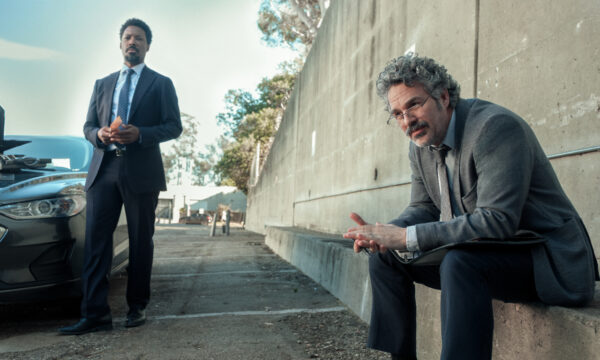


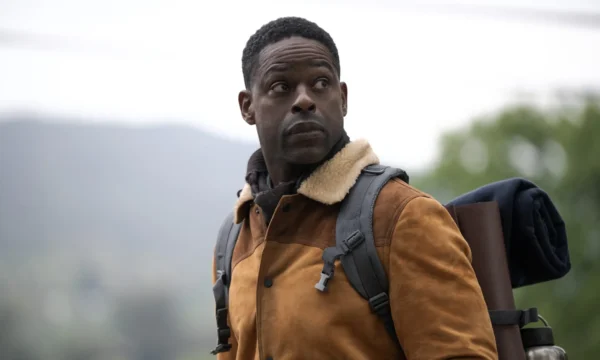


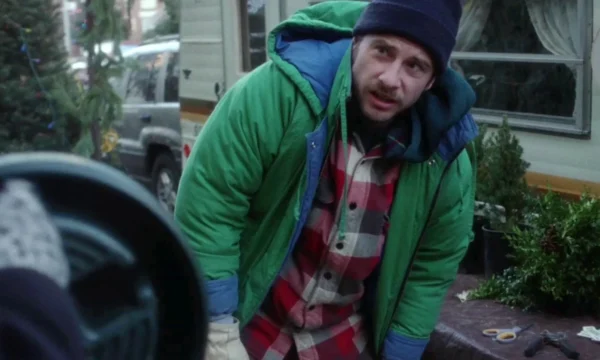




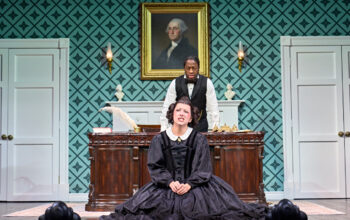










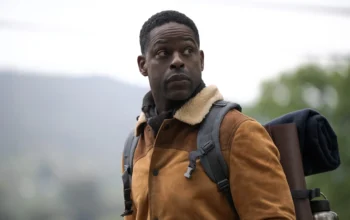

Facebook
Twitter
Instagram
YouTube
RSS